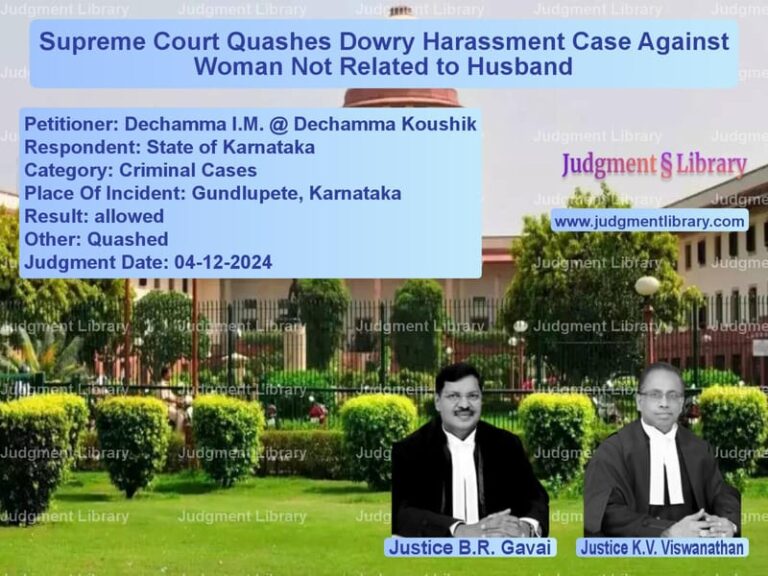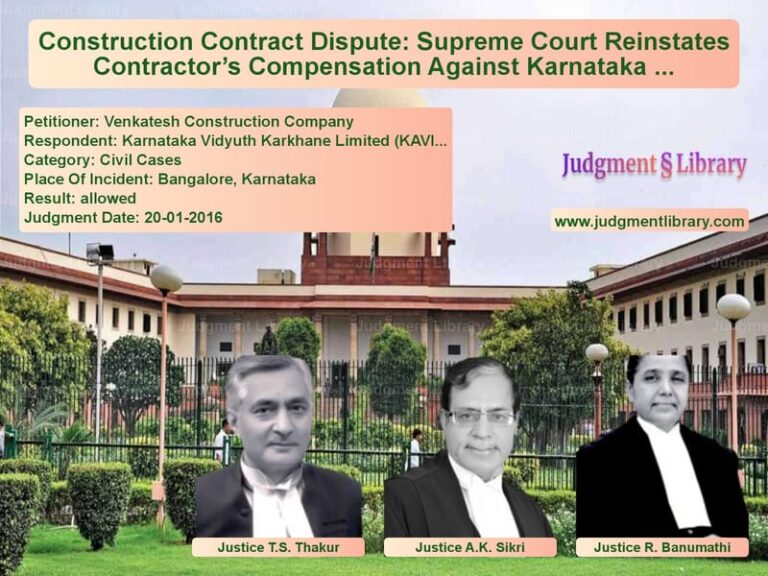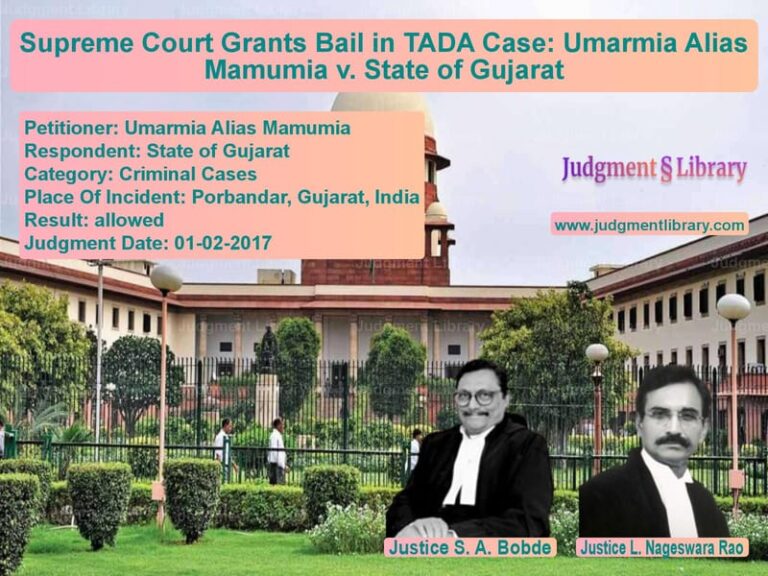Back Wages and Voluntary Relinquishment: Saryug Singh vs. National Seeds Corporation
The case of Saryug Singh (Dead) Through LRs. vs. National Seeds Corporation and Anr. deals with a long-standing dispute over back wages and termination of employment. The Supreme Court had to determine whether the deceased employee was entitled to full back wages for 23 years or if the claim should be limited based on the circumstances of the case.
Background of the Case
The deceased employee, Saryug Singh, was working for the National Seeds Corporation. His employment was terminated after he failed to respond to a public advertisement requiring him to report for duty. The appellants, who are his legal representatives, contended that he was entitled to back wages for a period of 23 years, as ruled by the Labour Court and the Single Judge of the High Court.
However, the Division Bench of the High Court limited the total compensation to Rs. 50,000, leading the appellants to challenge the decision before the Supreme Court.
Legal Issues
- Whether the deceased employee was entitled to full back wages for 23 years.
- Whether the termination was justified and constituted voluntary relinquishment of service.
- The legal validity of limiting compensation to Rs. 50,000.
Arguments by the Appellants
The appellants argued that the Labour Court and the Single Judge had already ruled in favor of full back wages, and therefore, the High Court erred in modifying the compensation to Rs. 50,000. They claimed that the deceased employee was unjustly deprived of his right to work and that his termination was illegal.
Arguments by the Respondents
The National Seeds Corporation argued that the employee had voluntarily abandoned his job and failed to respond to the public notice asking him to report for duty. They contended that the termination was lawful and that awarding back wages for 23 years would be unjustified.
Supreme Court’s Judgment
The Supreme Court ruled that the deceased employee was not entitled to back wages for the entire 23-year period. The Court agreed with the High Court’s view that the employee had voluntarily relinquished his service.
The Court observed:
“It is fairly clear that it is a case of voluntary relinquishment of service. There is no case for the appellants that despite reporting for duty, the deceased employee was not permitted to join duty after 1986. On the contrary, it is seen from the records that the termination was after the publication of advertisement in the newspaper requiring the deceased employee to report for duty, failing which he was liable to be terminated.”
The Court also acknowledged the humanitarian aspect of the case, considering that the deceased employee’s widow and children were now contesting the claim. As a result, the Court directed the respondents to pay an additional Rs. 1,00,000 as full and final settlement.
The Court further ordered:
“We direct Respondent No.1 to pay a further sum of Rs.1,00,000 (Rupees One Lac) in full and final settlement of the entire claims of the deceased employee. The said amount shall be paid to appellant No.1(i)/Nirmala Prasad Singh, wife of the deceased employee, within a period of six weeks.”
Key Legal Takeaways
- Back wages are not automatically granted for extended periods unless the termination was unlawful and the employee made efforts to rejoin.
- Failure to respond to public notices requiring an employee to report for duty can be considered voluntary relinquishment of service.
- Courts may consider humanitarian aspects while determining compensation for legal heirs.
- Employers must follow due process, including issuing notices before termination.
Conclusion
The Supreme Court’s decision in this case balances legal and humanitarian considerations. While it upheld the principle that employees cannot claim indefinite back wages without proving wrongful termination, it also ensured that the legal heirs received some compensation. This ruling reinforces the importance of timely reporting for duty and the legal consequences of failing to respond to official notices.
Don’t miss out on the full details! Download the complete judgment in PDF format below and gain valuable insights instantly!
Download Judgment: Saryug Singh (Dead) vs National Seeds Corpo Supreme Court of India Judgment Dated 10-04-2017.pdf
Direct Downlaod Judgment: Direct downlaod this Judgment
See all petitions in Employment Disputes
See all petitions in Public Sector Employees
See all petitions in Termination Cases
See all petitions in Judgment by Kurian Joseph
See all petitions in Judgment by R. Banumathi
See all petitions in partially allowed
See all petitions in Modified
See all petitions in supreme court of India judgments April 2017
See all petitions in 2017 judgments
See all posts in Service Matters Category
See all allowed petitions in Service Matters Category
See all Dismissed petitions in Service Matters Category
See all partially allowed petitions in Service Matters Category







